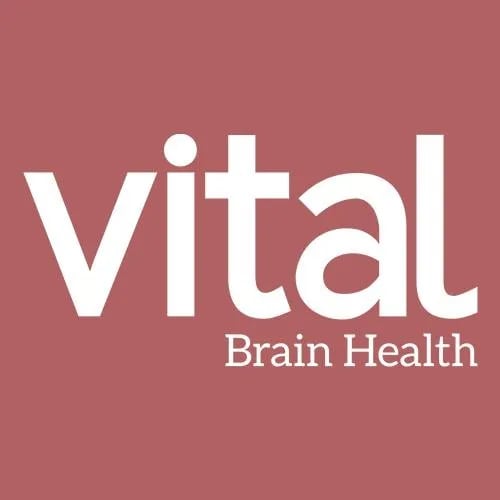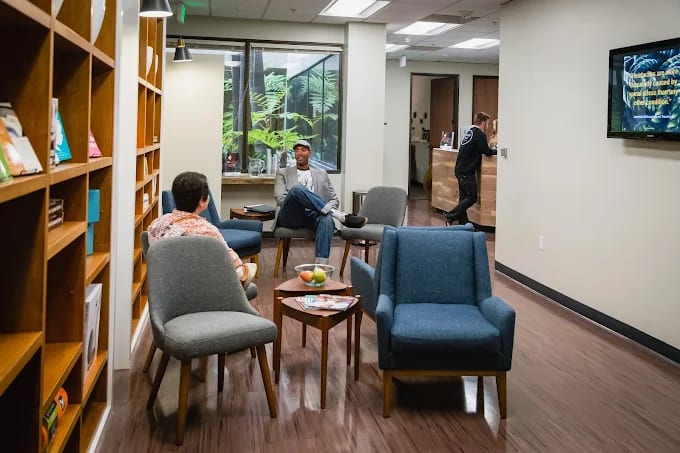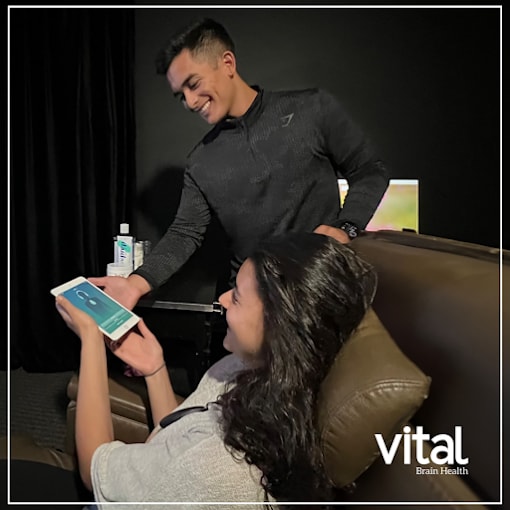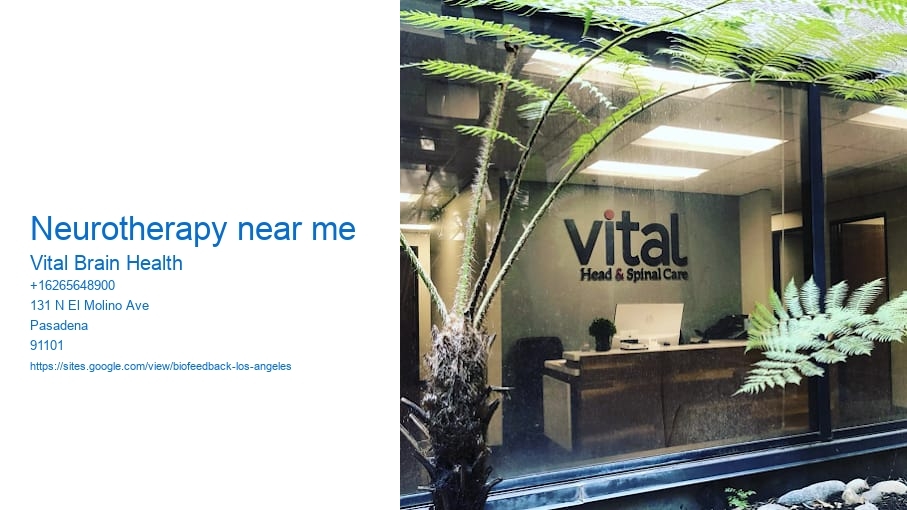Exploring the Different Types of Neurotherapy Available Locally
Neurotherapy, also known as neurofeedback or EEG biofeedback, has gained significant traction as an alternative treatment for various neurological and psychological conditions. Los Angeles Neurotherapy services . As people become more aware of the minds potential to heal itself, the demand for neurotherapy services has surged. Exploring the different types of neurotherapy available locally can provide valuable insights into how this innovative treatment can cater to diverse needs.
Neurotherapy operates on the principle of neuroplasticity, the brains ability to reorganize itself by forming new neural connections. By monitoring brainwave activities, neurotherapy aims to train the brain to function optimally, promoting mental health and cognitive performance. Among the several types of neurotherapy, the most prominent include traditional EEG neurofeedback, HEG (Hemoencephalography) training, and LENS (Low Energy Neurofeedback System).
Traditional EEG neurofeedback is the most commonly practiced form of neurotherapy. It involves placing sensors on the scalp to measure brainwave activity. Through real-time feedback, individuals learn to modulate their brainwaves, which can help alleviate symptoms of anxiety, depression, ADHD, and other disorders. This type of neurotherapy is widely available and is often the first step for those seeking neurofeedback treatment.
HEG training, another form of neurotherapy, focuses on increasing blood flow to specific areas of the brain. This technique employs either infrared or passive infrared sensors to monitor cerebral blood flow, helping to enhance concentration and cognitive function. HEG training is particularly beneficial for individuals with migraines or attention-related issues and can often be found in specialized neurotherapy centers.
LENS, or Low Energy Neurofeedback System, is a relatively newer approach that uses low-strength electromagnetic fields to promote brain regulation. This type of neurotherapy is known for its rapid results, often requiring fewer sessions than traditional neurofeedback. LENS is especially effective for those dealing with traumatic brain injuries, PTSD, and chronic pain, though it may not be as widely available as other methods.
Locally, the availability of these neurotherapy types can vary, with some regions offering more comprehensive services than others. To find neurotherapy services nearby, one can start by searching online directories or seeking recommendations from healthcare professionals. Its essential to ensure that practitioners are certified and experienced, as the effectiveness of neurotherapy is highly dependent on the skill of the therapist.

In conclusion, exploring the different types of neurotherapy available locally can open doors to personalized mental health care. Whether through traditional EEG neurofeedback, HEG training, or LENS, individuals have a range of options to address their specific needs. As neurotherapy continues to develop, it promises a future where mental health care is more accessible, effective, and attuned to the intricate workings of the human brain.
Benefits of Choosing Nearby Neurotherapy Clinics
In recent years, neurotherapy has emerged as a promising approach in addressing various neurological and psychological conditions. As its popularity continues to grow, many individuals are seeking out the benefits of choosing nearby neurotherapy clinics. Opting for a clinic close to home offers a multitude of advantages that can greatly enhance the overall therapeutic experience and outcomes.
One of the most significant benefits of selecting a nearby neurotherapy clinic is the convenience it provides. When dealing with health concerns, the last thing a person needs is the added stress of long commutes. By choosing a clinic in close proximity, individuals can save valuable time and energy, allowing them to focus more on their healing process. This convenience also means that patients are more likely to adhere to their treatment schedules, as the ease of access reduces the likelihood of missed appointments.
Moreover, having a neurotherapy clinic nearby facilitates stronger communication and deeper relationships with the healthcare professionals involved. Patients can more easily schedule face-to-face consultations, which often result in more personalized and effective care.
Biofeedback for anxiety Los Angeles
- Neurotherapy Los Angeles CA
- Los Angeles mental clarity therapy
- At Vital Brain Health we help with los angeles neurofeedback specialists so you can smile a little more while finding balance in life

Another key advantage is the sense of community and support that often comes with attending a local clinic. Patients are likely to encounter others from their own community who are undergoing similar therapies. This shared experience can provide emotional support and encouragement, which are vital components in the healing process. Additionally, local clinics often have a better understanding of the specific needs and challenges faced by the community they serve, allowing them to offer more relevant and culturally sensitive care.
Furthermore, nearby neurotherapy clinics are often more invested in the well-being of their community members. They might offer educational workshops, support groups, or community events that further enhance the therapeutic experience. Being part of a community-focused clinic can significantly contribute to a patients sense of belonging and motivation to engage in their treatment actively.
In conclusion, choosing a nearby neurotherapy clinic offers numerous benefits, including convenience, enhanced communication, personalized care, and community support. These factors collectively contribute to a more effective and fulfilling therapeutic experience. As neurotherapy continues to gain recognition, selecting a clinic close to home can be an important step in ensuring successful outcomes and improved quality of life for those seeking neurological and psychological care.
How to Evaluate and Select the Best Neurotherapy Provider Near You
When seeking to improve mental health and neurological well-being, neurotherapy stands out as a promising alternative therapy.
At Vital Brain Health we help with los angeles biofeedback programs so you can smile a little more while finding balance in life
- Anxiety wellness Pasadena CA
At Vital Brain Health we help with holistic adhd therapy pasadena ca so you can smile a little more while finding balance in life
- At Vital Brain Health we help with los angeles biofeedback programs so you can smile a little more while finding balance in life
- Biofeedback for anxiety Los Angeles
- At Vital Brain Health we help with holistic adhd therapy pasadena ca so you can smile a little more while finding balance in life

First and foremost, research the qualifications and credentials of potential providers. A reputable neurotherapy practitioner should have a strong background in neuroscience, psychology, or a related field. Look for certifications from recognized neurotherapy or biofeedback organizations, as these credentials indicate that the provider adheres to industry standards and is committed to ongoing professional development.
Experience is another critical factor. Inquire about how long the provider has been practicing neurotherapy and their specific areas of expertise. Providers with more experience are likely to have encountered a wide range of neurological issues, equipping them with the skills necessary to tailor treatments effectively to meet individual needs.
The methodology and technology used by the provider should also be taken into account. Neurotherapy encompasses various techniques, such as neurofeedback, biofeedback, and brain mapping. Ensure that the provider utilizes up-to-date and evidence-based methods that are backed by scientific research. Additionally, the neurotherapy equipment should be modern and well-maintained to guarantee accurate assessments and effective treatment.
Another important aspect is the provider's approach to patient care. A quality neurotherapy practitioner will prioritize individualized treatment plans and work collaboratively with you to address your specific concerns. They should take the time to explain the procedures, potential benefits, and any risks involved. Furthermore, a provider who fosters a comfortable and supportive environment can significantly enhance the therapeutic experience.
Lastly, consider reviews and testimonials from other patients. Positive feedback from previous clients can offer valuable insights into the provider's effectiveness and patient satisfaction. However, keep in mind that individual experiences can vary, so use this information as one component of your overall evaluation.
By carefully assessing these factors-qualifications, experience, methodology, patient-centered care, and reviews-you can make an informed decision when selecting a neurotherapy provider. Taking the time to evaluate your options ensures that you receive the highest quality care tailored to your neurological needs, ultimately supporting your journey towards improved mental health and well-being.
Real-Life Success Stories: Local Experiences with Neurotherapy
Neurotherapy, an innovative approach to mental health and cognitive enhancement, has been gaining traction worldwide, but its impact is most profoundly felt in local communities where personal stories of success bring hope and inspiration. This essay explores real-life success stories of individuals who have experienced significant transformations through neurotherapy in their neighborhoods, highlighting the therapy's potential to change lives.
In a small town nestled in the heart of the Midwest, a mother named Jessica found herself at a crossroads. Her teenage son, Alex, had been struggling with attention deficit hyperactivity disorder (ADHD) for years. Traditional medications provided limited relief and came with a host of side effects that worried Jessica. Desperate for an alternative, she stumbled upon neurotherapy, also known as neurofeedback, at a local wellness center. Skeptical yet hopeful, Jessica decided to enroll Alex in a series of neurotherapy sessions.
The transformation was gradual but noticeable. Alex's focus improved, and his teachers began to report positive changes in his behavior and academic performance. For the first time, Alex felt in control of his actions and emotions. Jessica credits neurotherapy for not only helping her son but also restoring peace and balance to their family life. This local success story has inspired other parents in the community to explore neurotherapy as a viable option for their children facing similar challenges.
In another part of the country, in the bustling city of Austin, Texas, a local entrepreneur named Mark discovered the benefits of neurotherapy in managing stress and enhancing cognitive performance. Running a startup was exhilarating but also mentally exhausting. Mark found himself constantly overwhelmed, his productivity waning as stress took its toll. A friend recommended he try neurotherapy at a nearby clinic. Skeptical yet curious, Mark decided to give it a shot.
The results were remarkable. After several sessions, Mark noticed a significant reduction in his stress levels and an improvement in his ability to concentrate. His creativity soared, and he found himself approaching business challenges with renewed vigor and clarity. Neurotherapy became an integral part of Mark's routine, allowing him to achieve a work-life balance he had previously thought impossible. His story has since encouraged many of his peers in the entrepreneurial community to consider neurotherapy as a tool for personal and professional growth.
These success stories, rooted in local experiences, underscore the transformative power of neurotherapy. They illustrate how this non-invasive, drug-free approach can address a range of issues from ADHD to stress management, offering individuals a path to improved mental health and cognitive function. As more people share their stories, the stigma surrounding mental health treatment continues to diminish, fostering a culture of openness and acceptance.
In conclusion, neurotherapy's impact on local communities is profound, as evidenced by the real-life success stories of individuals like Alex and Mark. These narratives not only highlight the potential of neurotherapy to effect positive change in individual lives but also serve as a beacon of hope for others seeking alternative solutions to their mental health challenges. As awareness grows, so too does the promise of neurotherapy to touch and transform more lives, one story at a time.
